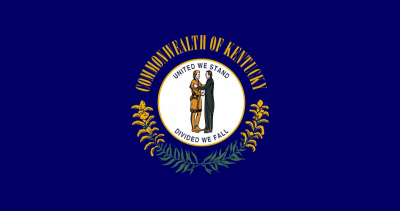Quantrill's Raiders were the best-known of the pro-Confederate partisan guerrillas (also known as "bushwhackers") who fought in the American Civil War. Their leader was William Quantrill and they included Jesse James and his brother Frank.
Early in the war Missouri and Kansas were nominally under Union government control and became subject to widespread violence as groups of Confederate bushwhackers and anti-slavery Jayhawkers competed for control. The town of Lawrence, Kansas, a center of anti-slavery sentiment, had outlawed Quantrill's men and jailed some of their young women. In August 1863, Quantrill led an attack on the town, killing more than 180 civilians, supposedly in retaliation for the casualties caused when the women's jail collapsed.
The Confederate government, which had granted Quantrill a field commission under the Partisan Ranger Act, was outraged and withdrew support for such irregular forces. By 1864 Quantrill had lost control of the group, which split up into small bands. Some, including Quantrill, were killed in various engagements. Others lived on to hold reunions many years later, when the name Quantrill's Raiders began to be used. The James brothers formed their own gang and conducted robberies for years as a continuing insurgency in the region.
Kentucky (US: (listen) kən-TUK-ee, UK: ken-), officially the Commonwealth of Kentucky, is a state in the Southeastern region of the United States, bordered by Illinois, Indiana, and Ohio to the north; West Virginia and Virginia to the east; Tennessee to the south; and Missouri to the west. The Commonwealth's northern border is defined by the Ohio River. Its capital is Frankfort, and its two largest cities are Louisville and Lexington. The state's population in 2020 was approximately 4.5 million.
Kentucky was admitted into the Union as the 15th state on June 1, 1792, splitting from Virginia in the process. It is known as the "Bluegrass State", a nickname based on Kentucky bluegrass, a species of grass found in many of its pastures, which has supported the thoroughbred horse industry in the center of the state. Historically, it was known for excellent farming conditions for this reason. Kentucky ranks 5th nationally in goat farming, 8th in beef cattle production, and 14th in corn production. Kentucky has also been a long-standing major center of the tobacco industry. Today, Kentucky's economy has expanded to importance in non-agricultural sectors, including auto manufacturing, energy fuel production, and medical facilities. The state ranks 4th among U.S. states in the number of automobiles and trucks assembled.The state is home to the world's longest cave system in Mammoth Cave National Park, as well as the greatest length of navigable waterways and streams in the contiguous United States and the two largest man-made lakes east of the Mississippi River. Kentucky is also known for its unique blended culture, which includes horse racing, bourbon, moonshine, coal, "My Old Kentucky Home" historic state park, automobile manufacturing, tobacco, bluegrass music, college basketball, Louisville Slugger baseball bats, Kentucky Fried Chicken, and the Kentucky colonel.

1865May, 10
American Civil War: In Kentucky, Union soldiers ambush and mortally wound Confederate raider William Quantrill, who lingers until his death on June 6.
Choose Another Date
Events on 1865
- 31Jan
Robert E. Lee
American Civil War: Confederate General Robert E. Lee becomes general-in-chief. - 13Mar
African-American
American Civil War: The Confederate States of America agree to the use of African-American troops. - 29Mar
Appomattox Campaign
American Civil War: Federal forces under Major General Philip Sheridan move to flank Confederate forces under Robert E. Lee as the Appomattox Campaign begins. - 4Apr
Richmond, Virginia
American Civil War: A day after Union forces capture Richmond, Virginia, U.S. President Abraham Lincoln visits the Confederate capital. - 6Apr
Appomattox Campaign
American Civil War: The Battle of Sailor's Creek: Confederate General Robert E. Lee's Army of Northern Virginia fights and loses its last major battle while in retreat from Richmond, Virginia during the Appomattox Campaign.

 English
English  español
español  français
français  português
português  русский
русский  العربية
العربية  简体中文
简体中文 